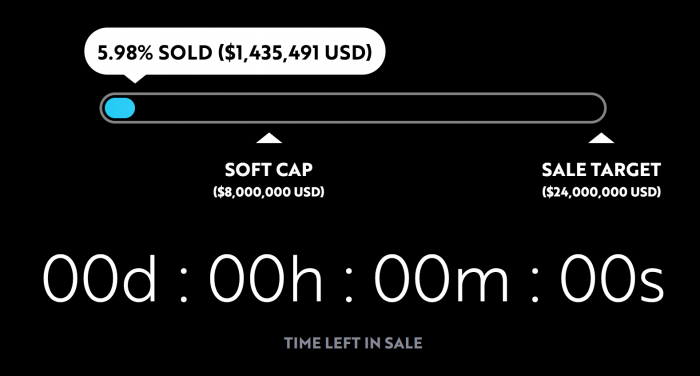
It was clear — definitely by midnight last night, but also in the days and weeks leading up to yesterday — that journalism blockchain platform Civil’s initial coin offering, in which it aimed to raise $8 million, was not going to work. Civil ended up raising about $1.4 million, and around three-quarters of that was acquired by ConsenSys, Civil’s seed investor.
Some of the things that went wrong are clear. It was very hard to buy into Civil, though in the last couple of weeks the company had started letting people buy tokens with cash and was also, up to the last minute, asking possible contributors to email Civil customer service for help buying tokens.“The biggest things to know are that a) we’re going to try this again in the near future, under more reasonable terms; and b) this doesn’t impact the grant funding for any of Civil’s initial, ‘First Fleet’ newsrooms, which will continue publishing per the terms of their respective agreements,” Civil cofounder Matt Coolidge told me in an email.
In a Tuesday post, Civil CEO Matthew Iles said that “a new, much simpler token sale is in the works. We’ll be sharing details on that soon,” and noted that nearly 3,000 people had bought Civil (the hard way!) in this offering. Those buyers can either “opt into this new sale, request an immediate refund, or be automatically refunded by October 29.”The “14 initial newsrooms” that got seed funding from Civil will keep running for now — and they’re getting a fresh $3.5 million from ConsenSys (beyond the funding that was announced last year) to do it. (Four other newsrooms had also joined Civil earlier this month, and Forbes had said it would experiment with it.) That $3.5 million will come with the relaunched token sale, Coolidge said (the Medium post notes the sale will happen within “weeks, not months”). Coolidge told me:
It reflects Consensys’ commitment purchasing $3.5M of CVL tokens at whatever price the reworked token sale determines. They’ve also committed to either a) not voting those tokens or b) working with the Foundation to ensure that the tokens are voted in a manner that does not represent the outsized ownership by ConsenSys as we bootstrap the system.
They recognize it will give them a large share in the network, and have no interest to gut the market dynamics by being able to exercise outsized voting power at the expense of others. We’ll be sharing more specifics on this front soon.
I was confused by this (is it valuable valuable cash that the news orgs are getting? Or is it Civil tokens?) Coolidge explained:
Consensys is going to buy $3.5 million worth of CVL tokens when we launch our new sale in the coming weeks, and at the new terms we set (eg, they’re not getting a discount on the price they pay for CVL relative to any other buyers).
They’re paying now for those tokens, with that money being committed to the Civil Foundation so that it can get up and running officially, and on the same timeframe Vivian and her team had projected based on the end of the the first attempted token sale.
Where @Join_Civil is at, for those wondering. Read it, and also keep in mind that this the first consumer-facing thing being built on blockchain – damned hard to be first, and damned hard to experiment in the open. https://t.co/593i52nLNG
— Sasha Koren (@SashaK) October 16, 2018
The token sale failed for Civil. But then comes the pivot? Here’s the latest from @Join_Civil…and listen to our conversation with the founders on where they went wrong this Thursday. https://t.co/RbvQ9MVnBj
— ZigZag podcast (@zigzagpod) October 16, 2018
It's not enough to tell people that you're going to save #journalism. Especially if you are trying to sell the idea that the key to salvation is a complicated thing like #blockchain – as the media startup @Join_Civil is learning the hard way. https://t.co/UpcaTgMLz9 pic.twitter.com/gyO3XyrBL1
— Georg Dahm (@GeorgDahm) October 14, 2018
Next stop on my crypto beginner's adventure … figuring out what to do with a small pile of Ethereum. 🤔
— John Keefe (@jkeefe) October 16, 2018